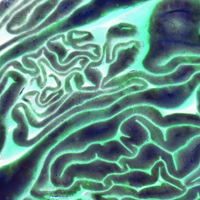was nützt die arbeit in gedanken? [why work in thought alone?]
an exhibition featuring works by
:: lysann németh
:: saskia göldner
:: elke jänicke
vernissage
28.09.2013 :: 19.00
ongoing in klub lokomov
dancing lost in thought
exhibition
28.09. bis 19.10.2013
15.00 – 20.00
galerie hinten
augustusburger str. 102
09126 chemnitz
a matter of opinion
once again it is time for us to meet up, to discuss which path to take and meadow saffron, to shoot glances off the balcony and into our glasses. an idea paws at the door to our imaginations as we awake the next morning. even before we’ve had time to marvel at how quickly it has arrived with us, our sleeves are rolled up and we get on with what we probably do best together: we condense our smorgasbord of ideas into multi-dimensional concepts, and let our synapse speed race towards the red line.
works of art become immortal if they spawn myth, if they anchor themselves in thoughts. it is in the same space – that where the world is deliberated, concepts are forged and yarns are spun – that the potential indispensable to the creation of works of art exists.
“yet perhaps experience is the element where art dies.” (heidegger, 1936)
do we need works of art as such? or are reproductions – whether originals or otherwise – simply a means of making art tangible and saleable? to put it in a more extreme way: does a work of art principally function as an idol, as a place of pilgrimage for believers?
the forthcoming exhibition will see the institut für wahre kunst investigate whether or not the step of reproducing thoughts with the aid of art can be leapfrogged. working according to the principle that art remains eternal as long as it is written about, the three lady artists will attempt to present a collective blank space in a way which enables it to be experienced by the senses. preserved in a castle made of thought, the exhibition will ask what the benefit and value of a properly formulated idea can be – or, to put it the other way around, what visual representation and the perception thereof are actually capable of achieving.



